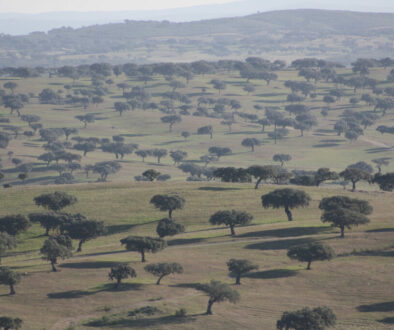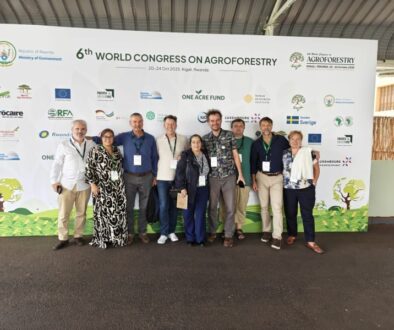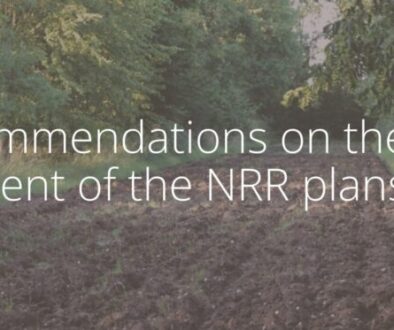Marcie Mayer Agroforestry stories
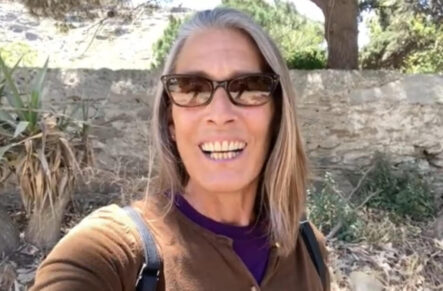
We are pleased to introduce another agroforestry story that must be shared far and wide.
We introduce Marcie Mayer, a renowned expert in acorn gathering, processing, storage, and culinary applications, and the founder of the OAKMEAL Acorn Initiative on Kea Island in Greece.
Marcie’s dedication to preserving the ancient oak forest and silvopastoral agroforestry system, as well as accompanying the local communities in embracing the acorn practices, heritage of Kea, has been nothing short of astonishing.
Author of “Eating Acorns” and several research papers on the subject, Marcie’s life on the island of Kea is a far cry from her Silicon Valley roots and academic background at UC Berkeley.
Her OAKMEAL Acorn Initiative, built on the silvopastoral agroforestry practices in Kea, is a comprehensive project dedicated to resource regeneration, food sovereignty, community building, and agroecology. The initiative holds annual acorn collecting, storing, and processing seminars in Greece and maintains an acorn shelling, leaching, and pressing facility.
Marcie has been successful and innovative in re-establishing the collection of acorn caps for export and introducing acorn flour-based products to the local cuisine. Farm families have had the opportunity to create income from the collection of acorns and acorn caps.
Don’t forget to nominate yourself or others to be featured in our upcoming #AgroforestryStories!
Fill in the online form here!
Why agroforestry?
Because agroforestry respects the integrity of forest systems and promotes a future where crops are cultivated without clear-cutting trees.
Kea’s silvopastoral system, where goats and pigs graze among the oak trees, demonstrates the island’s farmers traditional relationship to the land. By preserving this delicate balance and exploring innovative uses for the forest’s resources, we can ensure a prosperous future for Kea and its unique ecosystem.
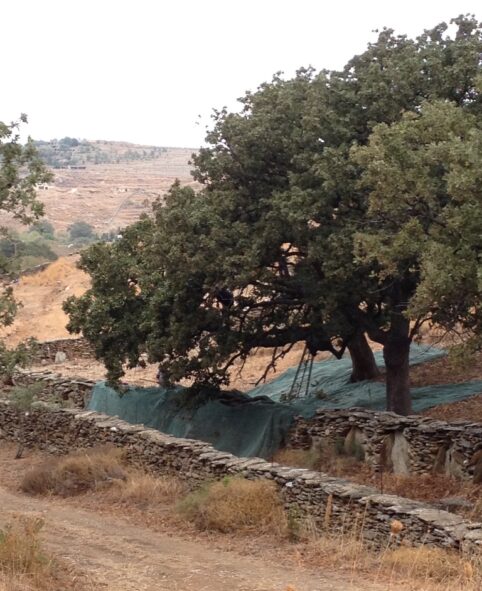
Harvesting with nets (Marcie Mayer’s photo)
The story of acorns
I grew up in Northern California, where I learned about acorn consumption from Native American tribes. After many years in Greece, I discovered the little-known ancient oak forest at the higher elevations of Kea Island and later moved there. I began to fear that this forest was in danger of disappearing due to rapid deforestation for firewood.
Local farmers on the island use acorns as pig feed, but did not have a tradition of processing acorns for human consumption. Historically, the large acorn caps from Kea were collected from the 15th century until 1965 and exported to European leather industries. I revived this practice by finding companies still using this material in Germany and Turkey. Unfortunately, these companies have ceased operations in recent years.
Beyond founding the OAKMEAL initiative and producing the world’s first acorn flour-based products like acorn flour and acorn cookies, my new idea involves the island’s municipality purchasing machinery to press acorn caps into biofuel. This would be a more sustainable approach, eliminating the need for long-distance transportation of the caps. Additionally, offering farmers the opportunity to convert acorn caps into biofuel would encourage farm families to harvest the oak trees rather than remove them. Acorns are very nutritious and gluten free. In a world where climate collapse and conflict will undoubtedly cause food shortages , helping people worldwide to appreciate acorns has become my life’s work.
Woodlanders’ episode on our Acorn Harvest in Kea featuring Marcie Mayer.
What are the most significant challenges you encounter?
It has always been challenging to introduce new practices into a farming community. Acorns have traditionally been fed to pigs, leading to a negative stigma as “pig food.” Additionally, acorns were only consumed on Kea during desperate times of famine during and immediately after World War II, further solidifying their reputation as an undesirable food source.
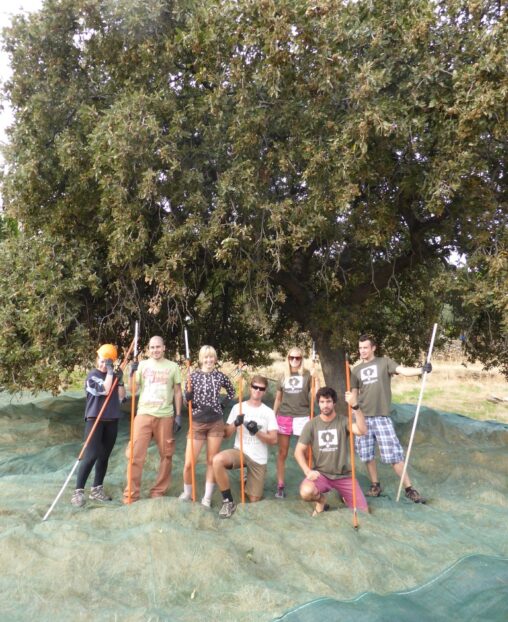
Harvesting acorns with volunteers on Kea (Marcie Mayer’s photo)
What benefits of agroforestry practices do you feel the most?
Preserving oak trees benefits numerous species that rely on them for sustenance. Oak root systems prevent soil erosion and help maintain water sources, such as springs. On a Greek island, agroforestry can attract environmentally conscious tourists who appreciate natural resources.
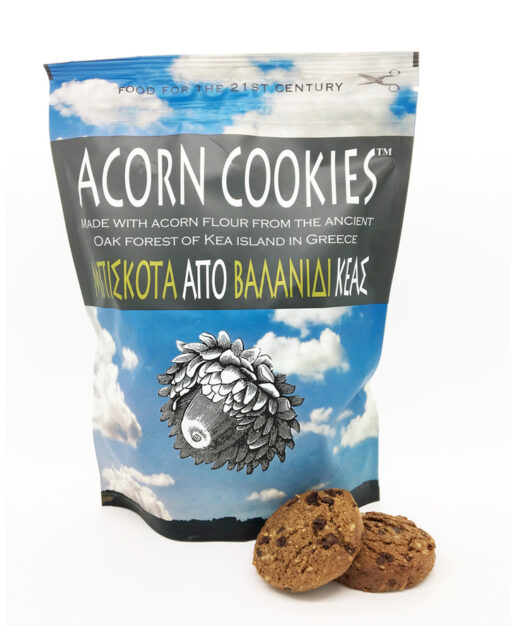
World’s 1st acorn product: Acorn Cookies (purchase from: https://www.marciemayer.com/category/all-products)
What would be your advice for new agroforesters?
My advice for aspiring agroforesters is to be transparent, invest time and energy in educating local stakeholders, and be patient, as it takes time for people to adopt new practices.
Contact Marcie & get more information about her work: https://www.marciemayer.com/

